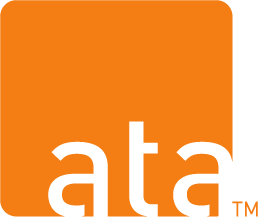Monitoring & Reporting
THIS-WIC will monitor the grantees’ efforts to assure accountability. Grantees will be required to submit progress reports and financial reports quarterly. A final report is due to THIS-WIC for review and comment within 60 days of the end of the project funding period, with a draft report due within 30 days of the end of the project funding period. The THIS-WIC team will coordinate reporting efforts; additional details and templates will be provided to grantees at time of award.
Grantees will be asked to provide a short video brief as a deliverable along with their research results that will serve to communicate key findings. THIS-WIC will provide instructions on creating a 508 compliant video presentation summarizing key elements of the intervention and outcomes. For those grantees who want to put less emphasis on video production, the THIS-WIC team will provide simple instructions for creating a straightforward webcam/Powerpoint presentation that has low production requirements but will be effective at communicating results of the project. The video briefs will be posted on the THIS-WIC website.
The THIS-WIC team will engage with grantees throughout the award period to build WIC practitioner capacity and share learnings. These engagement opportunities include:
- Bi-monthly progress calls with grantees to discuss implementation successes and challenges, share knowledge and troubleshoot evaluation and technology difficulties
- A post-award meeting with all grantees (delivered via webinar)
- Two in-person meetings: an initial Kick-off Training Workshop and a culminating workshop just prior to completion of the award period
The THIS-WIC team is also available to the grantees on an ad-hoc basis.
Use of Grant Funds
Grant funds may be used for project staff salaries, consultant fees (if applicable), data collection and analysis, meetings, supplies, project-related travel, and other direct project expenses, including a limited amount of equipment essential to the project. Grantees must include in their budget travel costs for at least two team members to attend the Kick-off training and the WIC Telehealth Innovation Research Dissemination Workshop, which will occur in the first and last quarters of the project period, respectively. The training and workshop will be held in the Washington, DC area.
Federal Regulatory Requirements
In addition to Tufts University subaward agreement terms, grants funded under this opportunity are also subject to the following Federal regulatory requirements.
1. Office of Management and Budget (OMB) Guidance: This Federal financial assistance award is subject to rules and regulations related to the Recipient’s organizational entity type as noted below.
Government-Wide Regulations
• 2 CFR Part 25: “Universal Identifier and System for Award Management”
• 2 CFR Part 170: “Reporting Sub-award and Executive Compensation Information”
• 2 CFR Part 175: “Award Term for Trafficking in Persons”
• 2 CFR Part 180: “OMB Guidelines to Agencies on Government-wide Debarment and Suspension (Non-Procurement)”
• 2 CFR 200: “Uniform Administrative Requirements, Cost Principles, and Audit Requirements for Federal Awards”
• 2 CFR 400: “Uniform Administrative Requirements, Cost Principles, and Audit Requirements for Federal Awards”
• 2 CFR Part 415: USDA “General Program Administrative Regulations”
• 2 CFR Part 416: USDA “General Program Administrative Regulations for Grants and Cooperative Agreements to State and Local Governments”
• 2 CFR Part 417: USDA “Non-Procurement Debarment and Suspension”
• 2 CFR Part 418 USDA “New Restrictions on Lobbying
• 2 CFR Part 421: USDA “Requirements for Drug-Free Workplace (Financial Assistance)”
• 7 CFR Part 3: “Debt Management”
• 41 U.S.C. Section 22 “Interest of Member of Congress”
• Privacy Act. The Cooperator/Recipient shall follow the rules and procedures of disclosure set forth in the Privacy Act of 1974, 5 U.S.C. 552a, and implementing regulations and policies, with respect to systems of records determined to be subject to the Privacy Act.
• Freedom of Information Act (FOIA). Public access to Federal Financial Assistance records shall not be limited, except when such records must be kept confidential and would have been excepted from disclosure pursuant to the “Freedom of Information” regulation (5 U.S.C. 552)
2. General Procurement Standards: The non-Federal entity must use its own documented procurement procedures, which reflect applicable State and local laws and regulations provided that procurements conform to applicable Federal law and the standards identified in this section. The Recipient must maintain oversight over contractors to ensure performance in accordance with the terms, conditions and specifications of their contracts or purchase orders, including written performance standards of its employees engaged in the selection, award and administration of contracts. The non-Federal entity must award contracts only to responsible contractors possessing the ability to perform successfully under the terms and conditions of a proposed procurement. In accordance with 2 CFR 200.318(j), the non-Federal entity may only use time and material type contracts after a determination that no other contract is suitable and if the contract includes a ceiling that the contractor exceeds at its own risk.
3. Competition: All procurement transactions must be conducted in a manner providing full and open competition consistent with 2 CFR 200.319.
4. Suspension/Debarment: The Recipient agrees to ensure that all sub-recipients are neither excluded nor disqualified under the Suspension and Debarment rules found at 2 CFR Parts 180 and 417 by doing any one of the following:
a. Checking the System for Awards Management (SAM) to determine if the applicant or Recipient has been debarred or suspended. This information can be found at www.sam.gov.
b. Collecting a certification that the entity is neither excluded nor disqualified. Because a Federal certification form is no longer available, the Recipient or sub-Recipient electing this must devise its own.
c. Including a clause to this effect in the sub-recipient agreement and in any procurement contract expected to equal or exceed $25,000, awarded by the Recipient or a sub-recipient within any agreements.
5. Nondiscrimination: The Recipient shall comply with the following nondiscrimination statutes and regulations, other related regulations and any USDA nondiscrimination directives:
a. Title VI of the Civil Rights Act of 1964 (42 U.S.C. 2000d- et seq.) and USDA regulations at 7 CFR Part 15, Nondiscrimination, an Department of Justice regulations at 28 CFR Part 42, Non discrimination; Equal Employment Opportunity: Policies And Procedures;
b. Title IX of the Education Amendments of 1972 (20 U.S.C. 1681 et seq.) and USDA regulations at 7 CFR Part 15a, Education Programs or Activities Receiving or Benefiting from Federal Financial Assistance;
c. Section 504 of the Rehabilitation Act of 1973 (29 U.S.C. 1681 et seq.) and USDA regulations at 7 CFR Part 15a, Education Programs or Activities Receiving or Benefiting or Benefiting from Federal Financial Assistance, and Department of Justice regulations at 28 CFR Part 41, Implementation of Executive Order 12250, Nondiscrimination On the Basis of Handicap In Federally Assisted Programs; and
d. Age Discrimination Act of 1975 (42 U.S.C. 6101 et seq.) The Recipient assures that it shall immediately take any measures necessary to effectuate the requirements in these laws, regulations and directives. The Recipient gives this assurance in consideration of and for the purpose of obtaining the funds provided under this agreement.
e. The Americans with Disabilities Act of 1990 (ADA) prohibits discrimination on the basis of disability in employment (Title I), state and local government services (Title II), places of public accommodation and commercial facilities (Title III). (42 U.S.C. 12101-12213).
The following nondiscrimination statement shall be included, in full, on all materials that are produced by the Recipient for public information, public education, or public distribution.
“USDA is an equal opportunity provider, employer, and lender.”
In accordance with Federal civil rights law and USDA civil rights regulations and policies, the USDA, its Agencies, offices, and employees, and institutions participating in or administering USDA programs are prohibited from discriminating based on race, color, national origin, sex, disability, age, or reprisal or retaliation for prior civil rights activity in any program or activity conducted or funded by USDA.
Persons with disabilities who require alternative means of communication for program information (e.g. Braille, large print, audiotape, American Sign Language, etc.), should contact the Agency (State or local) where they applied for benefits. Individuals who are deaf, hard of hearing or have speech disabilities may contact USDA through the Federal Relay Service at (800) 877-8339. Additionally, program information may be made available in languages other than English.
To file a program complaint of discrimination, complete the USDA Program Discrimination Complaint Form, (AD-3027) found online at: How to File a Complaint, and at any USDA office, or write a letter addressed to USDA and provide in the letter all of the information requested in the form.
To request a copy of the complaint form, call (866) 632-9992. Submit your completed form or letter to USDA by:
(1) mail: U.S. Department of Agriculture Office of the Assistant Secretary for Civil Rights 1400 Independence Avenue, SW Washington, D.C. 20250-9410;
(2) fax: (202) 690-7442; or
(3) email: program.intake@usda.gov.
Retention and Access
6. Evaluation and Access to Records: The Recipient shall cooperate with any evaluation of the program by providing the Agency requested data and access to records.
The Recipient shall cooperate with any, as needed, on-site financial and/or technical reviews and audits at any time during the term of the agreement. In addition, the Recipient shall make all records pertaining to activities under the grant available for audit purposes.






